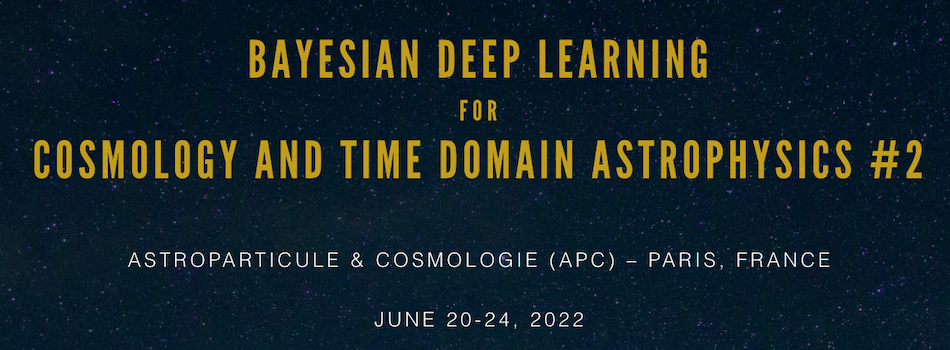Orateur
Description
Next-generation of astronomical surveys such as the Large Survey of Space and Time (LSST) and Euclid will collect massive amounts of data. It will present challenges not only because of the sheer volume of data but also because of its complexity. As these surveys will detect fainter objects, the increased object density will lead to more overlapping sources. In LSST, for example, we expect around 60% of galaxies to be blended. In order to better constrain Dark Energy parameters, mapping the matter content of our Universe with weak gravitational lensing is one of the main probes for the upcoming large cosmological surveys and one of the major systematics is expected to be the blending of objects. Classical methods for solving the inverse problem of source separation, so-called “deblending”, either fail to capture the diverse morphologies of galaxies or are too slow to analyze billions of galaxies. To overcome these challenges, we propose a deep learning-based approach to deal with the size and complexity of the data.
Taking forward the work on Debvader that uses a slightly modified form of Variational Autoencoders, our algorithm called MADNESS deblends galaxies from a field by finding the Maximum-A-posteriori solution parameterized by latent space representation of galaxies generated with deep generative models. We first train a VAE as a generative model and then model the underlying latent space distribution so that can it be sampled to simulate galaxies. To perform deblending, we do a gradient descent to find the MAP estimate.
In my talk, I will outline the methodology of our algorithm and evaluate its performance and compare it against state-of-the-art techniques, using flux reconstruction and runtime as metrics.

